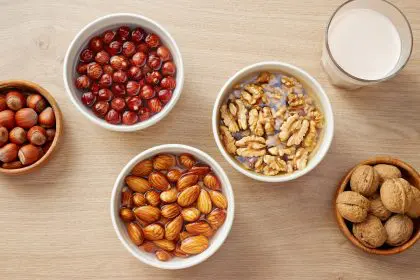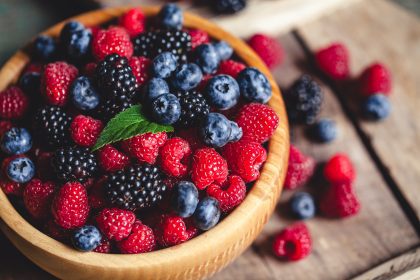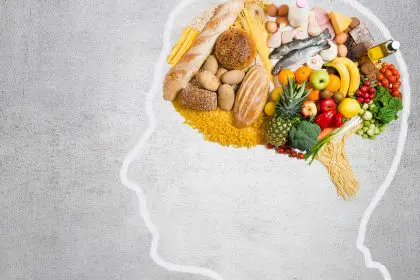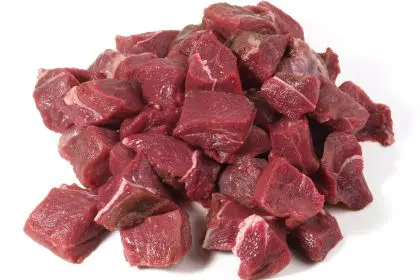Revolutionary findings reveal specific nutrients that combat age-related memory decline and enhance brain performance
The pursuit of maintaining sharp memory and cognitive vitality throughout life has led to remarkable discoveries about the powerful connection between diet and brain health. Recent evidence points to specific foods that deliver essential nutrients directly supporting brain function, memory retention, and protection against cognitive decline. These natural cognitive enhancers work through multiple mechanisms, offering accessible ways to support mental sharpness across decades.
The fascinating way food affects your brain
The brain demands extraordinary resources despite representing just 2% of body weight. It consumes 20% of the body’s energy and requires specific nutrients to function optimally. This disproportionate need makes dietary choices particularly influential for cognitive performance.
When the brain receives optimal nutrition, it experiences enhanced neurotransmitter production, improved blood flow, reduced inflammation, and strengthened connections between neurons. These effects manifest as better memory recall, increased mental clarity, and greater cognitive resilience against age-related changes.
Modern neuroimaging techniques now allow scientists to observe these effects in real time. Brain regions associated with memory formation show increased activity following consumption of certain nutrients. This visible evidence confirms what many have long suspected – food choices directly influence how well our brains perform, both immediately and over decades.
9 standout foods that dramatically enhance brain function
Among the vast array of nutritional options, certain foods demonstrate remarkable brain-supporting properties through rigorous investigation. These cognitive enhancers deliver specific compounds that address multiple aspects of brain health simultaneously.
1. Fatty fish transforms brain cell communication
Cold-water fish like salmon, mackerel, and sardines deliver exceptional cognitive benefits through their omega-3 fatty acid content. These essential fats comprise approximately 60% of brain tissue and form the primary structural component of neuron membranes.
DHA, a specific omega-3, particularly accumulates in the hippocampus – the brain region central to memory formation. Regular consumption maintains membrane fluidity, allowing neurons to communicate more efficiently and form stronger memory connections.
Beyond structural benefits, these fats reduce neuroinflammation that otherwise disrupts cognitive processing. This anti-inflammatory effect becomes increasingly important after age 40 when inflammatory processes naturally accelerate.
Just two servings weekly provides sufficient omega-3s to maintain optimal brain function. Wild-caught varieties typically offer higher omega-3 concentrations than farm-raised alternatives.
2. Blueberries reverse memory decline pathways
These small berries deliver outsized brain benefits through their exceptional concentration of anthocyanins – plant compounds that give blueberries their distinctive color. These compounds readily cross the blood-brain barrier where they accumulate in brain regions associated with learning and memory.
The cognitive impact becomes measurable within hours of consumption. Memory task performance improves as these compounds enhance signaling pathways involved in recall. Even more remarkably, consistent consumption reverses age-related decline in these same pathways.
The benefits extend to spatial memory – our ability to remember locations and navigate environments. This specific form of memory often shows early deterioration with age, making blueberry consumption particularly valuable for maintaining independence.
Just one cup daily provides sufficient anthocyanins to produce measurable cognitive benefits. Frozen blueberries retain these compounds and offer an economical year-round option.
3. Turmeric activates memory-forming genes
This vibrant yellow spice contains curcumin, a compound that influences brain function at the genetic level. Curcumin modulates over 700 genes, many directly involved in memory formation and neural protection.
Most remarkably, curcumin increases brain-derived neurotrophic factor (BDNF) – a protein that stimulates new neuron growth and strengthens existing connections. BDNF levels naturally decline with age, correlating closely with memory performance. Turmeric consumption helps maintain youthful BDNF levels even in older adults.
The cognitive benefits become most apparent in challenging mental tasks requiring sustained attention and complex processing. Regular consumers demonstrate enhanced ability to switch between tasks and maintain concentration in distracting environments.
Combining turmeric with black pepper increases curcumin absorption by 2,000%, maximizing cognitive benefits. Just ¼ teaspoon daily provides sufficient curcumin when consumed with a small amount of healthy fat to enhance absorption.
4. Walnuts rebuild neural connections
The physical resemblance between walnuts and the brain hints at their cognitive benefits. These nuts deliver an unmatched combination of omega-3 fatty acids, antioxidants, and vitamin E that collectively support neural regeneration.
Most notably, walnuts contain rare polyphenols that stimulate autophagy – the brain’s self-cleaning process that removes damaged proteins that would otherwise interfere with memory formation. This cleaning mechanism becomes less efficient with age, making walnut consumption increasingly valuable over time.
Beyond cleaning, these compounds enhance neuroplasticity – the brain’s ability to form new connections in response to learning. This capacity underpins all forms of memory formation and learning throughout life.
Just ¼ cup (about 7-8 walnut halves) daily provides optimal cognitive benefits. Their relatively high calorie content makes this modest portion ideal for balancing nutritional benefits with energy intake.
5. Dark leafy greens prevent accelerated brain aging
Vegetables like spinach, kale, and collard greens deliver multiple neuroprotective compounds that dramatically slow cognitive aging. Their distinctive benefits come from lutein and zeaxanthin – carotenoids that concentrate in brain regions responsible for information processing and memory.
These compounds reduce oxidative stress that otherwise damages neural membranes and disrupts neurotransmitter production. Their protection becomes increasingly significant after age 50 when natural antioxidant production declines sharply.
The cognitive effects appear most prominently in processing speed – how quickly the brain interprets and responds to information. Consistent consumers maintain youthful processing speeds decades beyond what would be expected based on chronological age.
One cup daily provides sufficient lutein and zeaxanthin to produce measurable cognitive protection. Consuming these greens with a small amount of fat enhances absorption of these fat-soluble compounds.
6. Extra virgin olive oil preserves memory networks
This Mediterranean staple contains oleocanthal, a compound with remarkable similarity to anti-inflammatory medications but without adverse side effects. Oleocanthal specifically targets inflammatory processes that damage memory networks.
Most significantly, this compound reduces formation of amyloid plaques and tau tangles – protein abnormalities associated with severe memory deterioration. Regular consumption creates a preventive effect, maintaining neural network integrity over decades.
The benefits extend to executive function – the cognitive processes involved in planning, decision-making, and self-regulation. These sophisticated brain functions typically show age-related decline, making olive oil consumption particularly valuable for maintaining independence.
Just 2 tablespoons daily provides sufficient oleocanthal for cognitive protection. Choosing high-quality, fresh olive oil maximizes oleocanthal content, as this compound diminishes with extended storage.
7. Dark chocolate enhances learning capacity
Cacao contains flavanols that increase blood flow to specific brain regions involved in learning and memory. This enhanced circulation delivers additional oxygen and nutrients precisely where they’re needed during cognitively demanding tasks.
Beyond circulation, these compounds stimulate dendrite growth – the branching extensions of neurons that receive signals from other brain cells. More extensive dendritic networks allow for more complex thought patterns and richer memory associations.
The cognitive effects become most apparent during prolonged mental effort. Consistent consumers demonstrate enhanced stamina for intellectual work and faster recovery following intensive cognitive tasks.
Just one ounce of dark chocolate (70% cacao or higher) provides sufficient flavanols for cognitive benefits. The relatively modest portion avoids excessive sugar and calorie intake while delivering maximum brain enhancement.
8. Eggs fuel memory formation processes
Egg yolks deliver choline – a precursor to acetylcholine, the neurotransmitter most directly involved in forming long-term memories. The brain cannot manufacture sufficient choline independently, making dietary sources essential for optimal memory function.
This nutrient becomes particularly critical during memory consolidation – the process of transferring information from short-term to long-term storage. Sufficient choline enables more efficient consolidation, allowing the brain to retain more information with less effort.
The cognitive benefits become most noticeable for verbal memory – recalling conversations, instructions, and written material. Consistent consumers demonstrate enhanced ability to remember specific wording and detailed information.
One egg daily provides approximately 125mg of choline – about 25% of the recommended daily intake. This modest contribution, combined with other dietary sources, maintains optimal acetylcholine production for memory formation.
9. Fermented foods repair the gut-brain connection
Foods like yogurt, kimchi, and sauerkraut support cognitive function through an unexpected pathway – the gut-brain axis. These fermented options deliver probiotics that modulate the gut microbiome, which directly influences brain function through multiple mechanisms.
Most remarkably, certain bacterial strains enhance production of brain-supporting compounds like serotonin and GABA – neurotransmitters that regulate mood, cognition, and stress responses. A balanced microbiome optimizes this production, creating ideal conditions for learning and memory formation.
The cognitive benefits become most apparent in stress resilience – maintaining clear thinking under pressure. Consistent consumers demonstrate enhanced ability to maintain cognitive performance during challenging situations that would otherwise impair memory formation.
Just ½ cup of fermented foods daily introduces sufficient beneficial bacteria to influence cognitive function. Variety proves more important than quantity, as different fermented foods contribute distinct bacterial strains with complementary benefits.
How to incorporate brain foods at every stage of life
The remarkable aspect of these brain-supporting foods lies in their benefits across the entire lifespan. Their effects address age-specific cognitive needs while supporting overall brain health regardless of life stage.
Young adults (20s-30s): Building cognitive reserves
During early adulthood, the brain remains highly plastic and responsive to dietary influences. This period presents a unique opportunity to establish neural reserves that provide cognitive resilience in later decades.
Incorporating brain-supporting foods during this stage enhances immediate cognitive performance while establishing long-term neural protection. The combination proves particularly valuable during career development and educational pursuits when cognitive demands often peak.
Focus areas include omega-3 sources like fatty fish and walnuts that support the extensive neural development still occurring into the late 20s. Dark chocolate and blueberries enhance learning capacity during this educationally intensive life stage.
Middle adults (40s-50s): Preventing cognitive slowing
The midlife period brings natural changes in brain metabolism and neurotransmitter production. These shifts can manifest as subtle changes in memory efficiency and processing speed if not addressed proactively.
Brain-supporting foods during this stage help maintain youthful cognitive performance by countering these natural changes. Their effects become particularly noticeable during multitasking and information retrieval – cognitive areas that typically show early age-related changes.
Focus areas include anti-inflammatory foods like olive oil and turmeric that counter the increased inflammation characteristic of midlife. Leafy greens and eggs support neurotransmitter production that naturally begins declining during this period.
Older adults (60s+): Maintaining cognitive independence
Advanced years bring increased vulnerability to oxidative stress and circulatory changes that can impact cognitive function. Dietary choices become increasingly influential during this stage as they can either accelerate or dramatically slow these natural processes.
Brain-supporting foods in later life help maintain cognitive independence and quality of life. Their effects become particularly evident in preserving executive function and memory recall – areas essential for continued autonomy.
Focus areas include all nine brain-boosting foods, with particular emphasis on those supporting circulation (dark chocolate, olive oil) and reducing oxidative damage (blueberries, leafy greens). The cumulative effects of these foods help maintain cognitive vitality well into advanced age.
Beyond individual foods: The synergistic approach
While each highlighted food offers significant benefits independently, their effects multiply when consumed together as part of a comprehensive dietary pattern. This synergy occurs because brain health depends on multiple biological systems functioning optimally together.
Mediterranean and MIND dietary patterns incorporate most of these brain-boosting foods while limiting processed options that oppose cognitive health. These comprehensive approaches consistently demonstrate more powerful effects than any single food alone.
The beauty of this approach lies in its flexibility and accessibility. Incorporating even a few of these foods regularly provides measurable cognitive benefits, with effects increasing as more brain-supporting options enter the diet.
With mounting evidence supporting food’s profound impact on brain function, the path to maintaining sharp memory and cognitive vitality becomes clearer. These nutritional choices offer a practical, enjoyable approach to supporting brain health throughout life’s journey.

















